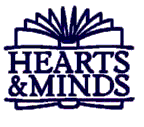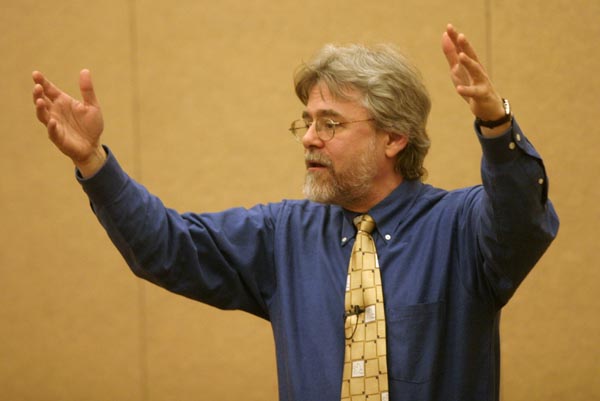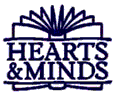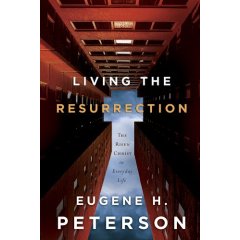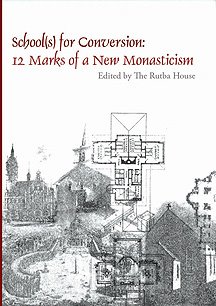Last week had us picking and boxing, listing and lugging, loading and driving, all the way to New England, north of Boston. We were honored to be chosen as bookseller for a heavy conference for Christian schoolteachers, mostly high school instructors, on making the notion of worldview come alive across the curriculum. The conference, sponsored by the very wonderful and altogether exceptional
Lexington Christian Academy, invited their participants to think how to cultivate inquiry, setting a tone to get students to think deeply and ask good questions, cherishing God's world in such a way as to learn in wonder. We sold plenty of books and got tons of good feedback, meeting teachers from across the nation. Thanks to LCA for having us play a part, and thanks to Kim W. for allowing me to stretch my book minutes a bit beyond---all right, a lot beyond---the one minute allotted. It is fun, I must say, to get applause for doing my animated info-merical schtick. I do hope everyone knew it was utterly sincere.
A few highlights:
David Naugle, worldview guru, and author of the spectacular
tour de force Worldviews: The History of an Idea cited in his keynote address our friend Sam Van Eman’s little book,
On Earth as It Is In Advertising: From Commercial Hype to Gospel Hope and worked with his simulated gospel (‘sim-gospel”) lingo to reflect on what might be considered sim- education. Naugle is a brilliant thinker, a very kind man, and a good teacher himself. (And we heard what book he is working on next!) Of course, he bought some books to lug back to Texas! I even got to tell people that Jim Sire’s 2005 book
Naming the Elephant is nearly dedicated to Naugle and that in the forward Sire thanks David for inspiring him to revisit the question of what a worldview is, how worldviews actually work, and why worldview studies are so very important to pursue. His talk, by the way, is on his
website, which you should visit regularly.
Nancy Pearcey gave a very helpful plenary speech, pretty much a summary of her main thesis, written in a compelling manner in the Gold Medallion book,
Total Truth. She summarizes Schaeffer’s upper-story/lower-story dichotomy and uses Dooyeweerdian methodology, nearly, to offer a full-orbed view of truth. It was a good experience hearing her again, and we thank her for her important words. I announced that she was Fran & Edith Schaeffer for the 21st century, and I don’t think I exaggerate. Check out info about the book
here. I suppose it was self-indulgent, but I had a chance to again thank her and celebrate her naming us in her first book,
The Soul of Science, an act of encouragement that we still recall gladly.
David Smith, gentle British scholar, now at Calvin College, is working on a number of projects, including some stuff to show how learning international languages can be an act of justice and peace; it isn’t everyday that one meets a careful scholar with such great passions for make the world right; to have solid theology and Godly piety and be at the top of his craft, thinking and teaching in such remarkable ways is a joy to behold. David co-authored the only book we know about teaching foreign language in a principled and healing way,
The Gift of the Stranger and he also wrote an argument for teaching Christianly in a book we are imported from across the big pond:
The Bible and The Task of Teaching. It, too, is an extraordinary and thoughtful work, rooted in his deeply wholistic, Christian approach. Both of these books are hard to find and we have them here.
David’s story of coming to faith years ago even while sensing that the evangelical subculture didn’t seem to offer much in the way of scholarly resources or visions was incredibly rewarding for me to hear. He shared that he picked up some books---he called the book display guy from England who sold him the right stuff at some conference somewhere my counterpart---and the lights came on for him: he had no idea that a tradition existed of serious academic renewal developed in light of Biblical perspectives and Christian conviction. But that one purchase years ago from an ad hoc bookseller, made the difference! Yeah---a bookseller at an off-site book table sold this young believer a book so many years ago and it set him on a direction where he is now himself a leader in the reformation of scholarship.
This is why we do what we do, driving all day and setting up all night, I said to my traveling assistant, Rainman Gus. Indeed. I hope you who read this now feel somehow a part of this story, too, this movement, this book-informed move to live out radical faithfulness...
Other authors and friends were there:
Jim Skillen and
Andy Crouch are older and newer friends and their work is respected. Check out their respective websites for thrilling insight and wonderful writing. And some brand new friends, too: what a joy to meet the author of a memoir I had packed,
The House Where Hardest Things Happened: A Memoir About Belonging by Kate Young Caley… I had no idea she worked at LCA and it was a thrill to meet her and chat about her writing and good care for indie bookstores. Thanks, Kate. Lots of good conversations, talking about books, answering questions, inviting shoppers to email us later. And, for the record, I suppose I verged on embarrassing myself by arguing with a Harvard physics prof. Not a smart move, some might say.
We saw snow in Massachusetts, visited great bookstores in Cambridge, ate sweet potato fries in some place Gus said was famous, and---get this!---stopped in a church basement on the way home and caught a remarkable show of guitar genius and Hearts & Minds friend,
Brooks Williams. We did a blurb on Brooks’ new CD,
Blues & Ballads, on
the bookstore website last month, and seeing him play live not only reminded me how much we love this performer, but how glad we are to stock his albums. He played with
Paul Asbell, himself a Middlebury College musicologist and legendary blues producer (yeah---he's worked with or produced everybody from Muddy Waters to Lightnin’ Hopkins, and played with guys like B.B. King, Curtis Mayfield and, and, Brooks Williams!) They told tons of stories about the music they played, taught us a bit about the blues and early jazz, and showed an glorious joy in playing so well for the delighted crowd. This was an awesome night of up-close live and loose music, called a “guitar summit” on the coffeehouse poster. Gus got brown rice Japanese tea and I got fair trade coffee, we hugged Brooks, who we’ve hosted here, but never seen on his home turf, and started home at midnight, which seemed like a bluesy thing to do, but was probably just stupid, arriving bleary-eyed in time to participate in our church service Sunday morning. And then collapsed into bed.
The LCA conference and bookselling road trip couldn’t have happened without Scott “Gus” Calgaro and I thank him here for his able assistance and storytelling and overall good direction, except when walking near Harvard Yard. And thanks again to the authors and book-lovers who support our work. Perhaps like in the story David Smith told, or the others that could also be told, these packages of print and paper will find their way into someone's heart, and change their world. Exhausted and sore as I am, late as it is, I thank God. Man, I love this job.
I hope you know we value your support, helping us keep this retail thing viable. Thanks.

